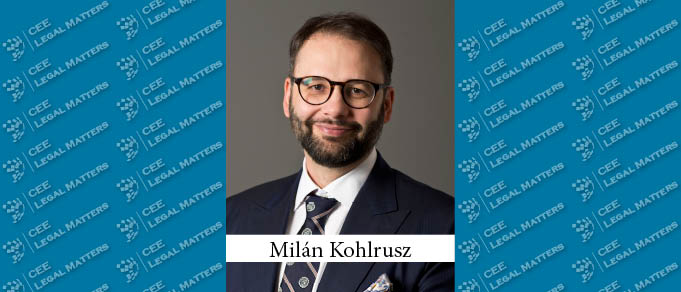The prospective tax and retail business nationalization-related reforms, together with war-related sanctions, are the major discussion topics in Hungary, according to Bittera Kohlrusz & Toth Partner Milan Kohlrusz.
"A couple of weeks ago we had general elections in Hungary," Kohlrusz begins, noting that the ruling party received majority votes again. "However, this is a challenging period, as the Hungarian government has to deal with budget issues," he explains. "There are expectations that a special tax regime will be introduced, for instance, in relation to banks and retail stores, to cover gaps between spending and the available budgetary resources."
"Following the elections, the Hungarian government also wants to nationalize the retail business, meaning that at least 50% of each retail company will be owned by Hungarian entities or individuals," Kohlrusz adds. "A couple of years ago, a similar policy was adopted with regard to banks and energy companies. This might potentially give rise to disputes between the investors and the government, and may lead to arbitration procedures on the international level."
Kohlrusz highlights that, as a result of the war, Hungarian lawyers are dealing with various immigration, employment, and corporate issues. "For instance, Ukraine and Belarus are known as hubs for IT and technology company startups," he points out. "These companies are still operating to a great extent but, considering sanctions and uncertainty, there are questions on how to relocate them to another country. Clients are asking whether it is possible to set up a new company, outside of these countries, to bring employees over, etc."
"It affects the energy sector as well," he says. "The EU wants to stop using Russian gas and oil but, considering the Hungarian economy and the extent of its dependence on Russian energy, the country now faces serious challenges. We are not as wealthy as Western European countries and, on top of that, only Mol – a Hungarian oil and gas company – can refine Russian oil. Even if we follow the EU recommendations, it might take fifteen years until we can fully substitute Russian energy," Kohlrusz explains.
The war in Ukraine and the related sanctions on Russian companies and individuals have created a lot of ambiguity on the international level, according to Kohlrusz. "We now have to track down these sanctions on a daily basis," he says. "Recently, we advised an airplane company that was producing and manufacturing products under a license, where an assessment was needed on whether the company and its executives and/or owners were on the sanctions list."
According to him, long-term relationships may end on a contractual level, which could also easily result in a breach of contract. "In the past, many law firms had Russian state-owned companies as clients, however, out of solidarity, many law firms have terminated those relationships." Finally, Kohlrusz points out that "another major topic is dealing with a sanctioned person’s assets. It brings up some very interesting legal questions, with regards to the legality and grounds for freezing their assets."















